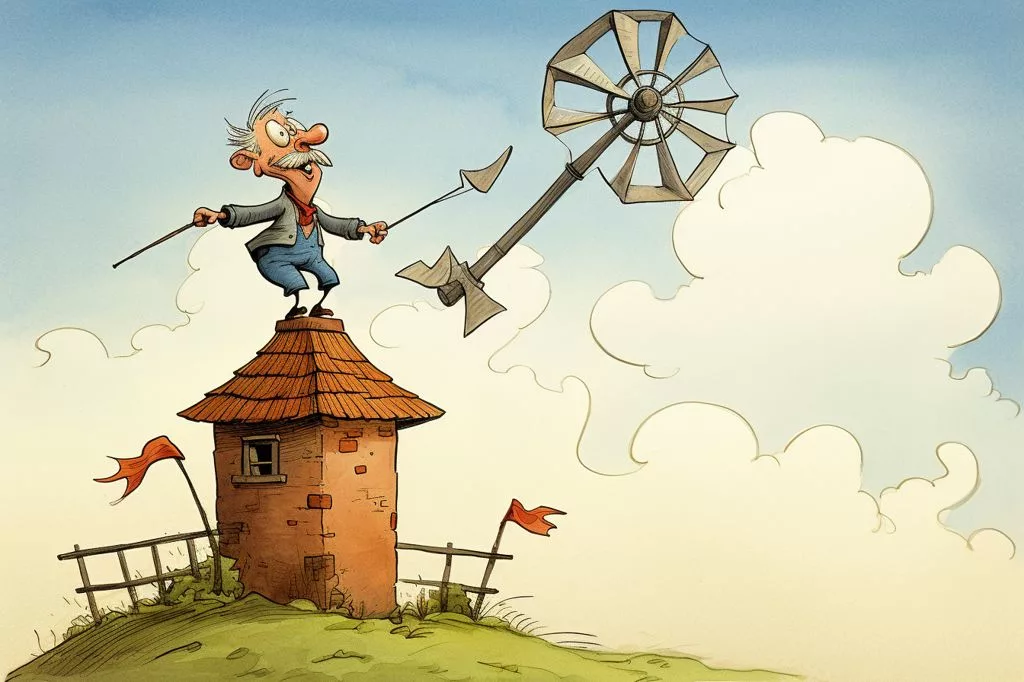Farmers must adapt to fluctuating climate conditions, monitor and manage livestock and crop health, and collaborate with relevant stakeholders to navigate the challenges of the 2023/24 summer season. They should prioritize drought-resistant cultivars, implement preventative measures against pests and diseases, and be ready for weather uncertainties such as flooding and veld fires. With the support of the Department of Agriculture and other stakeholders, farmers must embrace resilience and innovation to safeguard their livelihoods and the country’s food supply. The upcoming season serves as a call to action for farmers to prepare, be vigilant, and adapt to ensure a brighter future for all.
How can farmers navigate the challenges of the 2023/24 summer season?
To navigate the challenges of the upcoming summer season, farmers must adapt to fluctuating climate conditions, monitor and manage livestock and crop health, and collaborate with relevant stakeholders. They should implement preventative measures, prioritize drought-resistant cultivars, and be ready for pests and diseases associated with wet and hot conditions. Farmers must also monitor weather conditions, create fire belts, and take preventive measures against flooding. Finally, farmers need to embrace resilience and innovation to safeguard their livelihoods and the country’s food supply.
Weather Uncertainties and Preparations
Farmers nationwide brace themselves as the days grow hotter and the anticipated difficult season approaches. Veld and livestock conditions vary, ranging from poor to reasonable. Meanwhile, preparations for new crops are underway as summer nears, and the aftermath of recent veld fires has taken a toll on grazing land, infrastructure, and livestock.
To aid farmers in dealing with unpredictable weather, the South African Weather Service (SAWS) has issued a Seasonal Climate Watch. The early summer is expected to bring above-normal rainfall, followed by below-normal rainfall in mid-summer. The El Niño effect may alter the rainfall outlook for the latter half of the summer, emphasizing the need for vigilance among the agricultural community.
Adapting to Fluctuating Climate Conditions
In anticipation of these weather patterns, farmers must implement various preventative measures. Dryland farmers are advised to wait for adequate soil moisture before planting and to prioritize drought-resistant cultivars in typically dry areas. In preparing for the season, farmers should avoid expanding their planting area unnecessarily and should consider using short-season cultivars. It is crucial to recognize that some regions may not experience the predicted above-normal rainfall due to inconsistent rainfall distribution.
Farmers should also be ready for pests and diseases associated with wet and hot conditions. The early summer’s above-normal rainfall and high temperatures increase the likelihood of disease and infestation. Irrigation practices must adhere to local water restrictions, and resource conservation efforts should comply with the Conservation of Agricultural Resources Act (CARA), 1983 (Act No. 43 of 1983).
Monitoring and Managing Livestock and Crop Health
Given the potential impact of El Niño later in the season, farmers must continuously monitor conditions using extended weather forecasts for short-term and medium-term planning. Livestock management should be conducted carefully, ensuring that animals are kept in line with the veld’s carrying capacity and provided with supplemental feed and water. Providing shelter during adverse weather conditions is also vital for livestock wellbeing.
As veld fires have affected several provinces and the danger remains until sufficient rain arrives, farmers should prioritize the creation and maintenance of fire belts and adhere to veld fire warnings. Additionally, farmers must take preventive measures against the possibility of flooding due to rain-bearing weather systems.
Collaborative Efforts for Disaster Risk Mitigation
To further support the agricultural community, the Department of Agriculture, Land Reform, and Rural Development has joined forces with relevant stakeholders to raise awareness and provide assistance to farmers. This collaborative effort seeks to enhance comprehension, interpretation, and application of early-warning information for disaster risk mitigation and response.
Embracing Resilience and Innovation for a Brighter Future
In summary, the 2023/24 summer season serves as a call to action for farmers nationwide. The season’s unpredictable weather patterns necessitate preparation, vigilance, and adaptation to safeguard farmers’ livelihoods and the country’s food supply. By fostering resilience in the face of adversity, employing innovative and proactive strategies, and promoting a spirit of collaboration, farmers can navigate the uncertainties of the season and contribute to a brighter future for all.
What is the South African Weather Service (SAWS) Seasonal Climate Watch, and how can it help farmers prepare for the upcoming season?
The South African Weather Service (SAWS) has issued a Seasonal Climate Watch to help farmers deal with unpredictable weather during the 2023/24 summer season. The early summer is expected to bring above-normal rainfall, followed by below-normal rainfall in mid-summer. The El Niño effect may alter the rainfall outlook for the latter half of the summer, emphasizing the need for vigilance among the agricultural community.
How can farmers adapt to fluctuating climate conditions during the upcoming season?
Farmers should implement various preventative measures to adapt to fluctuating climate conditions during the upcoming season. Dryland farmers are advised to wait for adequate soil moisture before planting and to prioritize drought-resistant cultivars in typically dry areas. In preparing for the season, farmers should avoid expanding their planting area unnecessarily and should consider using short-season cultivars. Farmers should also be ready for pests and diseases associated with wet and hot conditions.
How can farmers monitor and manage livestock and crop health during the upcoming season?
Given the potential impact of El Niño later in the season, farmers must continuously monitor conditions using extended weather forecasts for short-term and medium-term planning. Livestock management should be conducted carefully, ensuring that animals are kept in line with the veld’s carrying capacity and provided with supplemental feed and water. Providing shelter during adverse weather conditions is also vital for livestock wellbeing.
What preventive measures should farmers take in preparation for veld fires, and how can they create fire belts?
As veld fires have affected several provinces and the danger remains until sufficient rain arrives, farmers should prioritize the creation and maintenance of fire belts and adhere to veld fire warnings. Fire belts can be created by removing vegetation to create a space between the fire and any potential fuel sources.
How can farmers prevent flooding during the upcoming season?
Farmers must take preventive measures against the possibility of flooding due to rain-bearing weather systems. They should be ready for weather uncertainties such as flooding and take measures to prevent it. They can create proper water drainage systems to avoid flooding in the fields.
How does the Conservation of Agricultural Resources Act (CARA), 1983 (Act No. 43 of 1983) impact irrigation practices during the upcoming season?
Irrigation practices must adhere to local water restrictions, and resource conservation efforts should comply with the Conservation of Agricultural Resources Act (CARA), 1983 (Act No. 43 of 1983). This act sets the guidelines for the protection, conservation, and sustainable utilization of agricultural resources in South Africa.
How does the Department of Agriculture support farmers during the upcoming season?
The Department of Agriculture, Land Reform, and Rural Development has joined forces with relevant stakeholders to raise awareness and provide assistance to farmers. This collaborative effort seeks to enhance comprehension, interpretation, and application of early-warning information for disaster risk mitigation and response.
What is the call to action for farmers during the 2023/24 summer season?
The 2023/24 summer season serves as a call to action for farmers nationwide. The season’s unpredictable weather patterns necessitate preparation, vigilance, and adaptation to safeguard farmers’ livelihoods and the country’s food supply. By fostering resilience in the face of adversity, employing innovative and proactive strategies, and promoting a spirit of collaboration, farmers can navigate the uncertainties of the season and contribute to a brighter future for all.








